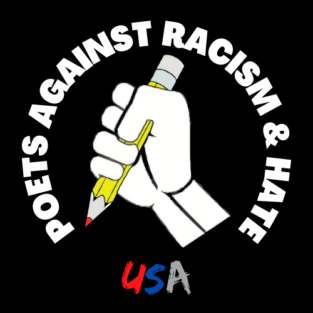March 8, 2025
When
By Jane MacKinlay McCartney
When someone intentionally injures another
and everyone looks away in silence…
When anyone uses racial insults
and all others remain quiet…
When there is an unwanted sexual advancement made upon another
and everybody ignores it…
When no one challenges evil words or actions,
silence teaches.
Silence is anything but silent.
It speaks volumes.
Jane MacKinlay McCartney’s work has been published in various anthologies, the most recent being Volume 1 of Erie County Poetry Anthology (2022). Others include Celebrate: A Collection of Life’s Celebrations, compiled by Debra R. Sanchez (2019); The Picture This Anthology (2018), edited by 2016–2018 Erie County Poet Laureate Marisa Moks-Unger; and Poetry Quarterly (Spring 2018). A regular participant in various local poetry events, Jane resides with her husband, Mike, in Erie, Pennsylvania. Jane’s awards include Pennwriters Area 1 Annual Writer’s Road Trip Billboard Writing Contest, 2nd place—2018 and 2019, 3rd place—2022 and 2023.
February 11, 2025
When
By Barbara E. Rumore
Now we repeat the damn silliness again
How many times must this battle for freedom, for rights, for equity, for equality be fought
AND WON
Only to be erased as you also attempt to erase or more politely erode and rewrite my history
Done so to spare the poor long suffering white children from the emotional pain and trauma they are suffering today in classrooms from “a thing” that happened looong ago that they had nothing to do with
What about how I suffered through what little of my history was taught
The textbooks never mentioned the kings, queens, great leaders, movers and shakers and great thinkers that were my African ancestors
I was only exposed to the half naked bush African men and women with their spears in front of small huts made of twigs and mud
I saw only pictures of naked children
I the long suffering black child felt only shame
I the long suffering black child felt only embarrassment
I the long suffering black child felt only the desire to disappear
I the long suffering black child felt only the desire to be anywhere but there
I THE LONG SUFFERING BLACK CHILD FELT NO PRIDE
Martin remarked “The arc of the moral universe is long, but it bends toward justice”
I want to know when
When will that arc finally hit justice
Note: The suggestion that the arc of the moral universe is long but bends toward justice was attributed first to Theodore Parker, a Unitarian minister and prominent American Transcendentalist who in his 1853 sermon “Of Justice and the Conscience” made reference to the moral universe, stating “the arc is a long one.…it bends toward justice.”
Barbara E. Rumore retired from public health nursing administration and moved to Vieques, Puerto Rico, where she lived for 13 years. A native of Oil City, Pennsylvania, she settled in Franklin upon her return to northwestern Pennsylvania. Her avocation for fitness became a career teaching fitness, which shifted to work as a swim instructor. The world around her, poetry, and life experiences are her inspiration. She is a member of Poets Against Racism & Hate USA and The Bridge Literary Arts Center. She has had poems published in The Bridge Literary Arts Journal. Watching her parents volunteer has been her guide for volunteering throughout her life.
January 16, 2025
Rerun
By Dawn Marar
My daughter says, “Reveal yourself, your true ID,”
as I drink wine and write and she chopchopssizzz.
In the kitchen, I was never more than a Martha Stewart clone
clutching my ’70s Betty Crocker gold-tone statuette—
an award for sewing a wrap dress for my sister.
In the attic now, Betty holds the laurel high above her head.
At my request, daughter tosses words while pare-scrape-
slicing. Like a golfer shouting “Fore!”
she cries, “Corn!” And up pops
Jimmy crack corn and I don’t care.
It’s harvest time, after all.
But wait! Corn-crackin’ Jimmy?
I—who bursts into song at the slightest provocation—
bite my tongue. Rising from a ’50s childhood
(not Eminem’s 2007 rap song),
My master’s gone away.
How shall I harvest that?
As a child, I didn’t think about what it meant
but it could have meant only one thing:
slave master. I must’ve known.
We all must’ve known. All of us, white
kids in the all-white school in the all-white village
in upstate New York, where I grew up.
Daughter pitches, “Elmer Fudd and plastic surgery.”
(Where does this girl get her ideas?)
But it’s no laughing matter.
Shhh…be vewy vewy quiet.
Plastic surgery’s no cover.
Like Elmer Fudd, I sport scant melanin.
This is the moment, in the pwogwam folks,
where, tempted to flush it—or think I can—
the ole system backs up
and I have to face the fact
the master’s not gone away.
Dawn Marar is the founder of “Moving Beyond Bloc-Whiteness,” a writing workshop. Her chapbook, Efflorescence, published by Finishing Line Press, focuses on connections to the Middle East. A finalist for the Pablo Neruda Prize for Poetry and the Orison Anthology of Poetry Awards, she has a master’s from Columbia University and has worked as a community organizer and planner. Her website is http://www.dawnmarar.weebly.com. Dawn is currently writing about whiteness from an antiracist stance. A poem from that series was published by Barzakh: A Literary Magazine.
